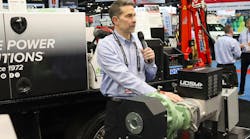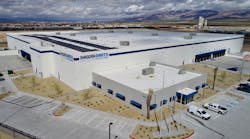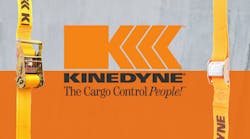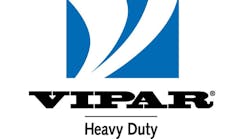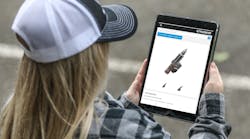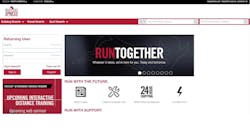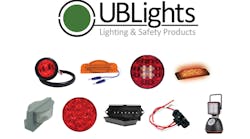It's not who you know — it's who knows you.
Take it from David Avrin, an internationally renowned marketing speaker, branding consultant, and business author: With the world filled with companies that do the same thing, you have to do something unexpected to build your brand and stand out. The idea is one that applies to the commercial truck and trailer industry, not just companies that sell their product in grocery stores and shopping malls. Distributors and trailer dealers have a brand.
“What is this brand thing?” he asked. “Your brand is nothing more than getting people to think about you the way you want to be thought of or when you want to be thought of. What can we do to help people think about us the way we want?
Avrin believes your brand today is the ultimate lagging indicator. It is the report card — everything that has happened up to this point has led to what your brand is, because you don't own your brand. It resides in the minds of others who do business with you.”
But what do you want your customers to think about your company?
“Every transaction and conversation has contributed to how people think of you,” he said. “You may want to be the leading authority on ‘X’ or the go-to resource on ‘Y.’ What's missing in that gap between where you are and where you want to be? Who has yet to have the remarkable experience of doing business with your distributorship or parts company?”
Avrin said the good news is that there are a lot of ways to do this right. The only way to do it wrong is to underperform.
This is not about masking deficiencies through clever slogans. This is not about “putting lipstick on a pig.” This is honestly describing those great things you do.
But the bad news, according to Avrin, is that “everybody's good.”
“There may be some slight differentiation in terms of product selection,” he said. “Fifteen or 20 years ago, we could compete on quality and customer service. Today the playing field has leveled — whether it's government regulations, adherence to quality standards, or a marketplace that has weeded out lesser players. What remains is a marketplace populated by very strategic, quality players. Virtually anybody in this room could disappear from the face of the earth today, and the marketplace would not miss you for a minute.”
So how can you make the case that you are not just a good choice but a better choice than all other choices?
How can a memorable, marketable, clearly differentiated brand be made?
“Be unexpected, be remarkable,” he said. “Something that makes you stand out. This seems fairly obvious to most of you because most of our experience in the marketplace is mediocre. We forget most of it. Most things are just OK.
“What does it take to be remarkable? It could be a proprietary process nobody has, a unique high profile, multiple locations, pioneering a new process or technology or delivery system, or a unique service option. To what question are you the answer?”
Owning a brand
Avrin said that as a company looks to potentially grow its business or even sustain it in a shrinking marketplace, it must ask itself what it is known for by non-customers.
“Every expansion or initiative you consider or new product line you want to distribute, does it get closer to that or is it a distraction?” he said.
“Think about the iconic buildings around the world. It's not about money. The Sydney Opera House is the most recognized building in the world. They decided to do something great. Somebody was tapping on the brakes while somebody else was pushing on the gas pedal.
“Being, really, really, really good at what you do is the entry fee. That gives you permission to be in the marketplace. It is not a differentiator.”
Avrin said companies have spent tens of millions of dollars building infrastructure, pipeline, and distribution networks, but most have spent mere minutes crafting words to describe what they do — or, if they have an outside marketing firm, maybe an hour.
An exercise for your company
Avrin suggested taking a look at how you promote your company and compare it with how your competitors promote theirs. He suggested placing all promotional material on a large table. Then do the same with the two or three largest competitors.
“Give everybody a highlighter and go around the table playing “buzzword bingo” with the marketing claims,” he said.
“You will be stunned at how similar, if not identical, their claims are to yours,” he said. “What can you do enhance what you offer in terms of inventory, expanded hours, flexibility of payment terms? Your quality is not enough as a differentiator. The market will celebrate the specialist over the generalist.
“There's the mistaken belief that everybody's looking to make the best decision possible in purchasing, hiring, and contracting. I'd submit to you that most are looking to avoid making a bad decision. It's not like we're looking for lowest common dominators. I think we're assuming everybody's good. What's my second line of criteria?
“Sometimes there are lives riding on the parts I buy. I can't screw this up. So what are the things you're doing to make yourself a safer choice? It could be your longevity, expanded hours, or extended warranties. Being a specialist is another way to be that safer choice. This is not about being another player in the marketplace. You've got to win. What are you doing that makes you worthy of being remarked about?”
He said he once spoke at a convention for the International Spa Association, which represents health and wellness facilities and providers in more than 70 countries, with members encompassing the entire arena of the spa experience, from resort/hotel, destination, mineral springs, medical, club and day spas to service providers.
As he walked the convention floor, he ran into a booth for Footlogix Pediceuticals, with a slogan of, “Where Medi Meets Pedi.”
“Did you make that up that word, pediceuticals?” he asked the woman.
“Yes, do you like it?” she said.
“I love it. I'm a marketing guy.”
Reflecting on that bit of marketing genius, he said: “Ped from the Latin for feet. Pediceuticals. Everything makes you soft and supple. This stuff is kind of actually good for you, or so they'd like you think.”
He said the four most dangerous words in business are “all things being equal.”
“We shop based on price,” he said. “If you struggle with a commodity, it's because your prospects believe all things are equal. Who in this room aspires to be the low-price leader in your category? How much does that sell you? You can do it, but you have to make it up in volume. That's Wal-Mart. They're almost a specialist in being a generalist.
“You have to find those differentiators and you have to highlight them. Are we communicating those effectively? When they believe all things are equal, they're looking for the lowest price. We're abdicating to the marketplace when we say, ‘Listen, we're just going to take care of quality. The rest will take care of itself.’ It's crazy. People sell all time on, ‘our reputation speaks for itself.’ That's lazy. You have to speak for yourself. It's time for a little creative boasting.
“Marketing is not a department. It's not to say you don't have a marketing department. It's a reminder that marketing happens at every level of your organization. Every conversation, every interaction is a chance to make an impression. The question is, are we making a fine impression or a spectacular impression?
“Differentiate. What are the words you are using to describe your business? You have to be truly persuasive. Words have meaning. Words can be powerful and they can be meaningless. They can be common or truly memorable and persuasive.”
He said there is a plague of blah-blah-blah, especially in the United States. The first answer he gets when he asks companies about what makes them special: “Our people make the difference.”
“I go, ‘Really, don't those people bear a striking resemblance to people who work for your competitors?’” he said. “We have to stop pretending our people are our competitive advantage. Don't get me wrong: hire well, hire slowly, treat people great, and hold them accountable, and they will retain your best customers. But touting your people means nothing because everybody says it.”
His tips on how to promote:
- Sole claim. “We are the only …”
- Action verb. “We created, developed, pioneered …”
- Supremacy. First, fastest, largest, oldest, softest.
- Honors: Named “Entrepreneur of the Year,” “Best Places to Work,” “Top-10 Supplier.”
- Media appearances. “Perhaps you saw our full-page article in …”
- Key clients: “When UPS was looking for a supplier …”
